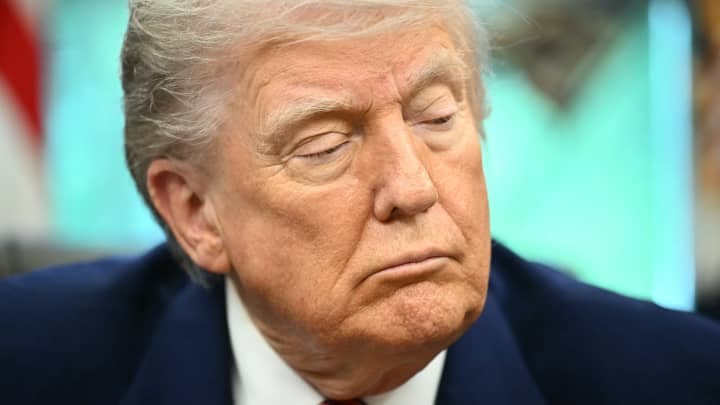Following courts' decision to suspend Trump tariffs, European equities plummet as euphoria wanes.
How Germany's DAX became the new market darling by outperforming its peers
The blue-chip index is up more than 20% so far this year, with sectors ranging from banking and industrials to defense lifted by expectations of a fiscal expenditure boost. Germany's DAX was down 0.4% on Thursday.
Laura Cooper, Nuveen's head of macro credit and global investment strategist, discussed the reasons behind the year's strong performance and why "more sluggish advances" may be in store for the future in an interview with CNBC's "Early Europe Edition" earlier today. Watch the video below:
European stocks experience a decline.
European markets have erased their earlier gains, with the regional Stoxx 600 index dropping to a 0.12% loss despite bullish momentum in the United States.
The worst-performing stocks are utilities and media, both down about 0.5 percent. Auto Trader, a UK online platform for car sales, is down 11% after its yearly income fell short of analyst forecasts. British auto manufacturing production fell 8.6% in April, according to data released separately on Thursday.
Good beginning on Wall Street
The S&P 500 is up 0.8%, the Nasdaq Composite is up 1.5%, returning to positive territory for the year, and the Dow Jones Industrial Average is up 0.1% as the major U.S. indices get off to a strong start on Thursday.
In addition to the Trump tariff decision, investors are still processing the first quarter's top and bottom line figures from technology leader Nvidia, which exceeded forecasts. On Thursday, shares were up over five percent.
Trump's negotiating position is weakened by tariff ruling: Aberdeen
Lizzy Galbraith, senior political economist at Aberdeen, points out that even if President Donald Trump manages to reinstate a large portion of his policies, his bargaining strength over tariffs has been undermined.
"As long as the lawsuit is pending, the administration will most likely appeal the decision and try to remove the IEPPA tariff ban. Galbraith wrote, "The case is likely to end up in the Supreme Court, but it will first go to the US Court of Appeals for the Federal Circuit."
However, the decision has important ramifications for nations who participated in trade talks with the United States. Many are probably going to hold off on making significant concessions until it is clear whether the tariff block will be maintained. Thus, the decision weakens Trump's bargaining position," she continued.
The ruling raised concerns for businesses, according to Andrew Thurston, senior manager of customs duty at professional services firm MHA.
"Can we anticipate a similar impact while we await the appeal's ruling, given that imports soared in the first quarter as companies sought to evade the April tariffs? Maybe, but companies are still navigating uncharted territory and may be hesitant to make significant strategy adjustments in such a volatile climate," Thurston stated.
"Will companies that have already paid 'illegal' duties on U.S. goods receive their money back, in addition to the tariffs at U.S. customs being suspended for the near future? If this is the case, firms may remain in the dark for a long time and the U.S. customs officials would have a significant work ahead of them.



.jpeg)

